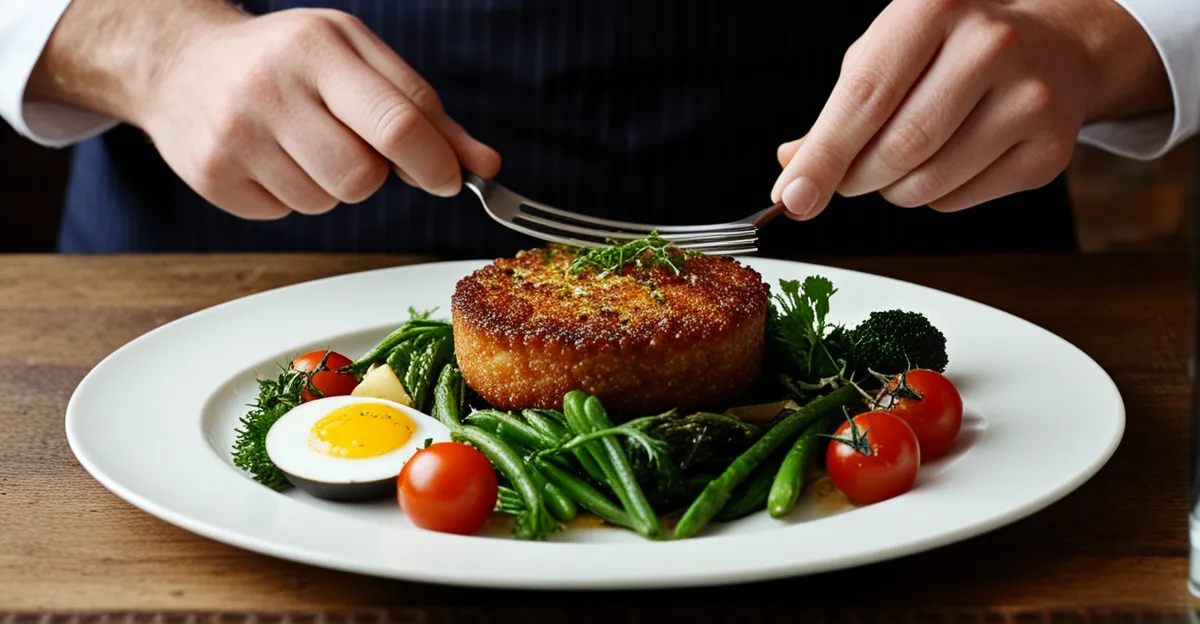Key Drivers of Change in Modern British Cuisine
The evolution of British food is propelled by several dynamic factors reshaping British gastronomy today. One key driver is the profound influence of multiculturalism on traditional recipes. Ingredients and techniques from Asian, Middle Eastern, and Caribbean cultures blend seamlessly with time-honoured British dishes, creating exciting contemporary flavours. This multicultural input enriches diversity without eroding heritage, encouraging creativity within the culinary community.
Another significant factor is the growing emphasis on local, seasonal, and sustainable ingredients. Modern British chefs prioritize provenance and freshness, championing environmental responsibility while offering more vibrant, authentic tastes. This trend not only supports local producers but also elevates British gastronomy by celebrating the country’s varied regional produce.
Also to see : How do you create a light and fluffy spotted dick?
Advances in culinary technology and presentation also play a crucial role. Innovative cooking methods, such as sous-vide and molecular gastronomy, unlock new textures and intensified flavours, while artistic plating heightens the dining experience. Together, these drivers reflect a modern British cuisine that honours tradition yet embraces change with enthusiasm and precision.
Reinvention of Traditional British Dishes
Exploring how classic dishes evolve under modern influences.
This might interest you : How can you master the art of baking scones?
The reinvention of traditional British dishes is a defining feature of contemporary British cooking. Leading chefs approach British classics with creativity, reimagining recipes to suit modern palates while respecting their origins. This practice involves transforming familiar textures and flavours through new techniques, elevating simple dishes into sophisticated experiences.
Fusion plays a key role in this evolution. Chefs skillfully blend global flavours with heritage recipes, balancing innovation and tradition. For example, popular British staples like shepherd’s pie or fish and chips have been updated with exotic spices or novel cooking methods — inviting both nostalgia and excitement.
A few examples illustrate this trend:
- Incorporating Middle Eastern spices into sausages or stews.
- Using Asian-inspired sauces to refresh classic roasts.
- Experimenting with presentation styles, combining rustic charm and haute cuisine aesthetics.
This creative reinterpretation of British classics appeals to both domestic diners and international audiences, showcasing the adaptability of British gastronomy. It highlights the ongoing dialogue between history and innovation, encouraging chefs to push boundaries without losing the essence of time-honoured dishes. The result is a vibrant culinary scene where reinvented British recipes flourish as part of a rich, evolving food culture.
Multicultural Influences Shaping British Food
Multicultural dining Britain drives a remarkable transformation in the evolution of British food. The growth of Asian, Middle Eastern, and Caribbean food cultures injects vibrant international flavours UK consumers eagerly embrace. This influx enriches British fusion cuisine, blending diverse ingredients and techniques with traditional recipes to create dynamic new dishes.
How does multiculturalism manifest in British kitchens? It’s visible in both home cooking and restaurant menus, where chefs expertly combine spices, herbs, and cooking methods from these cultures. For example, integrating Middle Eastern spices into stews or applying Asian marinades to classic meats reshapes familiar tastes while respecting British classics.
Restaurant concepts blending British and international cuisine foster this trend by offering innovative plates reflecting global culinary pathways. These venues accurately respond to Britain’s diverse population and quest for fresh, adventurous dining experiences.
This multicultural influence harmoniously coexists with the emphasis on local, seasonal produce. Together, they expand British gastronomy’s palette, making contemporary British cooking a true reflection of global Britain. The result is a transforming culinary landscape where multicultural fusion broadens horizons and delights adventurous palates.
Emerging Chefs and Innovators
The new wave shaping modern British gastronomy.
Modern British chefs are vital agents in the evolution of British food, driving culinary trends with creativity and vision. These culinary innovators UK are not only revisiting British classics but also crafting bold, original dishes that reflect today’s diverse palate. Their kitchens blend tradition with innovation, injecting fresh energy into British gastronomy.
Signature dishes often fuse local ingredients with international influences, demonstrating how modern British chefs embrace global flavours while maintaining a distinct British identity. This approach resonates in innovative restaurant experiences, where cutting-edge techniques and artistic presentation elevate dining to memorable occasions.
Moreover, many chefs lead initiatives promoting culinary education and outreach, helping the public appreciate the craft behind modern British cuisine. Through workshops and collaborations, these chefs disseminate knowledge on local, sustainable ingredients and evolving cooking methods, fostering a deeper connection between chefs, producers, and consumers.
This new British gastronomy movement highlights the importance of nurturing talent and embracing change. By pushing traditional boundaries and engaging diverse communities, culinary innovators UK ensure British food remains vibrant, relevant, and exciting for future generations.
Dining Trends and Consumer Preferences
Evolving tastes shape the future of British cuisine.
British dining trends increasingly reflect health-conscious eating habits UK, with plant-based options becoming a major force in contemporary food movements. Consumers seek meals that balance flavour with nutrition, leading to widespread adoption of vegetarian and vegan dishes. This shift is notable in both home cooking and restaurant menus, where plant-based alternatives are celebrated alongside traditional offerings.
The popularity of food markets, pop-ups, and casual dining also defines modern British eating culture. These venues emphasize variety, accessibility, and innovation, catering to diverse tastes and lifestyles. Food markets provide a unique platform for small producers and culinary startups, fostering experimentation and local engagement.
Digital platforms have a significant impact on dining choices, helping consumers discover new experiences and trends rapidly. Social media and apps influence restaurant popularity and menu design, encouraging chefs to adapt swiftly. This digital influence aligns with the broader evolution of British food by promoting transparency and interaction between diners and producers.
Together, these trends showcase a British gastronomy responsive to consumer needs, blending convenience, health, and cultural curiosity in a vibrant culinary landscape.
Expert Perspectives and Industry Reflections
Delving into culinary commentary UK provides invaluable insight into the evolution of British food. Food critics and culinary historians consistently highlight how British gastronomy balances respect for tradition with openness to change. They emphasize that this ongoing transformation is a response to global influences, consumer demands, and sustainability concerns.
Interviews chefs reveal a shared enthusiasm for innovation coupled with a reverence for heritage. Many discuss how modern British chefs experiment with textures, flavours, and presentation to engage contemporary diners. They also underscore the importance of education and collaboration to nurture the next generation, ensuring British cuisine remains dynamic.
Noteworthy publications frequently analyze culinary trends, reflecting on how British gastronomy adapts and thrives amid shifting cultural and economic landscapes. These expert opinions point to an exciting future where technology, multiculturalism, and sustainability continue driving progress.
Ultimately, expert opinion British cuisine stresses the significance of dialogue between past and present. Their reflections provide both a critical lens and a hopeful outlook on British food’s ability to evolve while preserving its identity. This balanced perspective encourages chefs and consumers alike to embrace ongoing change thoughtfully.





